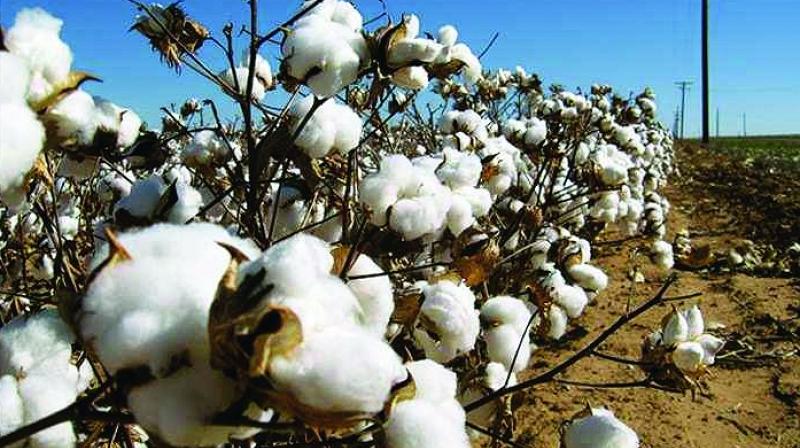Bollworm strikes, Telangana to lose cotton

Hyderabad: Cotton production in Telangana this year is feared to come down drastically thanks to the pink bollworm pest and inferior quality seeds. It is estimated that pink bollworm will eat up 40 per cent of the cotton crop this year.
While the state grew a record cotton crop, the pest has damaged crops over a large area.
The agriculture and marketing departments estimate a fall in production from 3.30 crore quintals estimated earlier, to two crore quintals. Unseasonal rains and spurious seeds have also played a part in lowering the production.
Fifteen cotton farmers have committed suicide in cotton-growing districts over the past month because of crop loss and the government is concerned about how to stem this tragedy as the losses grow.
Under normal circumstances, huge stocks of cotton should have flooded major markets by now. But this is not being seen anywhere the Khammam market should receive 20,000 quintals per day but is not getting even 6,000 quintals.
Half of the cotton produced this season should have reached the markets by now. But the agriculture and marketing departments estimate that only 68 lakh tonnes were received till December 8. Of this, the Cotton Corporation India purchased 15 lakh quintals; the rest 53 lakh quintals were bought by private traders.
Cotton affected by dry weather
Telangana’s cotton sowing area normally is 1.08 crore acres for the kharif crop. This year, cotton was sowed on a record 47.72 lakh acres, which should have brought in a bumper harvest.
The prolonged dry spells in July, August and September dealt the first blow and helped the spread of bollworm. Spurious seeds used by farmers were not resistant to the pest and during the wet days in October and November the situation worsened, affecting the cotton crop over 10 lakh acres. The productivity has also come down to 6-7 quintals against normal productivity of 10-12 quintals. “Twenty per cent of the crop lost was on account of use of unapproved BG-3 cotton seeds, which couldn’t resist the bollworm pest,” a report submitted to the government said.
A source in the agriculture department said, “We have directed dealers not to sell these seeds. Raids were conducted in all the districts and cases were booked against dealers. Over 100 samples of different seeds were collected and sent to laboratories for testing. Ninety-five per cent of these samples were of cotton, which were found to be of inferior quality.” Genetically engineered seeds like Monsanto’s BG-II are supposed to be resistant to pink bollworm but the spurious seeds many farmers used did not guard against this pest, officials said.

